8 key moments that won the Tour de France for Chris Froome
From the winds of Zélande to the heights of Alpe d'Huez, these are the moments that really counted
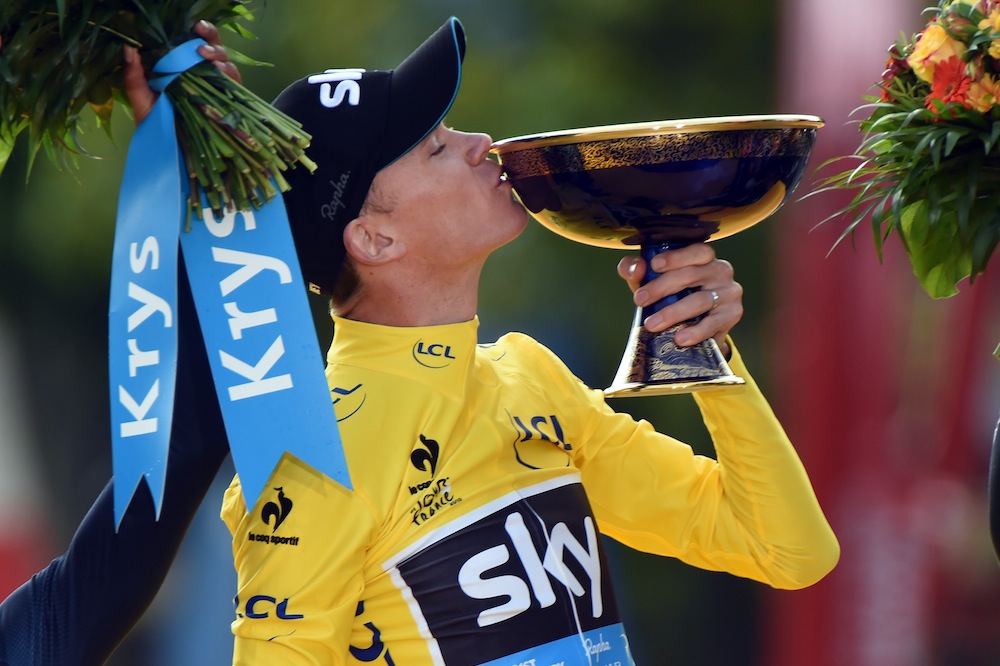
Chris Froome on stage twenty-one of the 2015 Tour de France (Watson)
This year's Tour de France was as epic as ever, spanning three countries, 23 days and more than 2,000 miles of riding, as 198 cyclists battled it out for the biggest prize in cycling.
At the time the race is wonderfully chaotic, a hectic maelstrom of attacks and crashes, sprint finishes, solo attacks, canny tactics and outrageous bravery. When the dust settles, however, the race crystallises into a handful of key moments when everything hung in the balance and, in 2015, Chris Froome proved his mettle on the way to an outstanding win.
So here they are… the moments that won this year's Tour.
Contador masterminds early strike
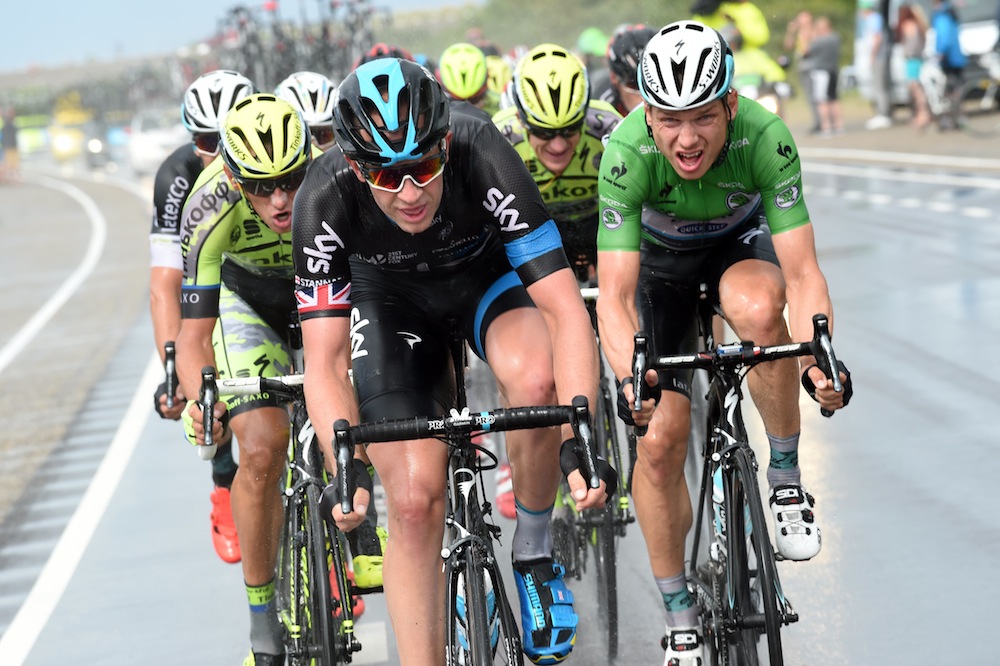
Gone are the days when the Tour de France route would deliver day after day of flat stages for the sprinters in the early part of the race. And while that is bad news for the likes of Mark Cavendish, the race is all the better for it.
Looking at the map, stage two from Utrecht was simple enough – 166km of pan-flat riding into Zélande. But the route was wickedly exposed, and high winds were tipped to cause havoc in the peloton, destroying any hope of keeping all the riders together safe and sound.
And so it proved. As the peloton split, Nairo Quintana (Movistar) was stranded, and soon a crash slowed down Vincenzo Nibali (Astana) too. Alberto Contador (Tinkoff-Saxo), the elder statesman of the lead contenders, took control, leading Froome to an attack that would ultimately prove decisive.
"We did talk out on the bike," said Froome at the end of the stage. "He said, 'Listen, we have the gap, let's commit to this move now, let's both buy into this.'"
Get The Leadout Newsletter
The latest race content, interviews, features, reviews and expert buying guides, direct to your inbox!
It was exactly the right decision. Team Sky's Geraint Thomas and Ian Stannard worked with Tinkoff's Peter Sagan, Deniele Bennati and Michael Rogers, and by the end of the stage Froome was 1-21 minutes ahead of Nibali and 2-39 ahead of Quintana.
When you consider that the final margin of victory over Quintana in Paris was just 1-12, this was arguably the decisive day of the Tour – and Froome has Contador to thank for spotting the killer moment so early in the race.
Froome takes yellow
The Tour de France had never before taken on the famous Mur de Huy, the Belgian climb that marks the climax to the one-day Flèche Wallone. The day was dominated by a huge crash involving race leader Fabian Cancellera (Trek Factory Racing) that would force the Swiss to retire from the race, and the prime beneficiary was Froome.
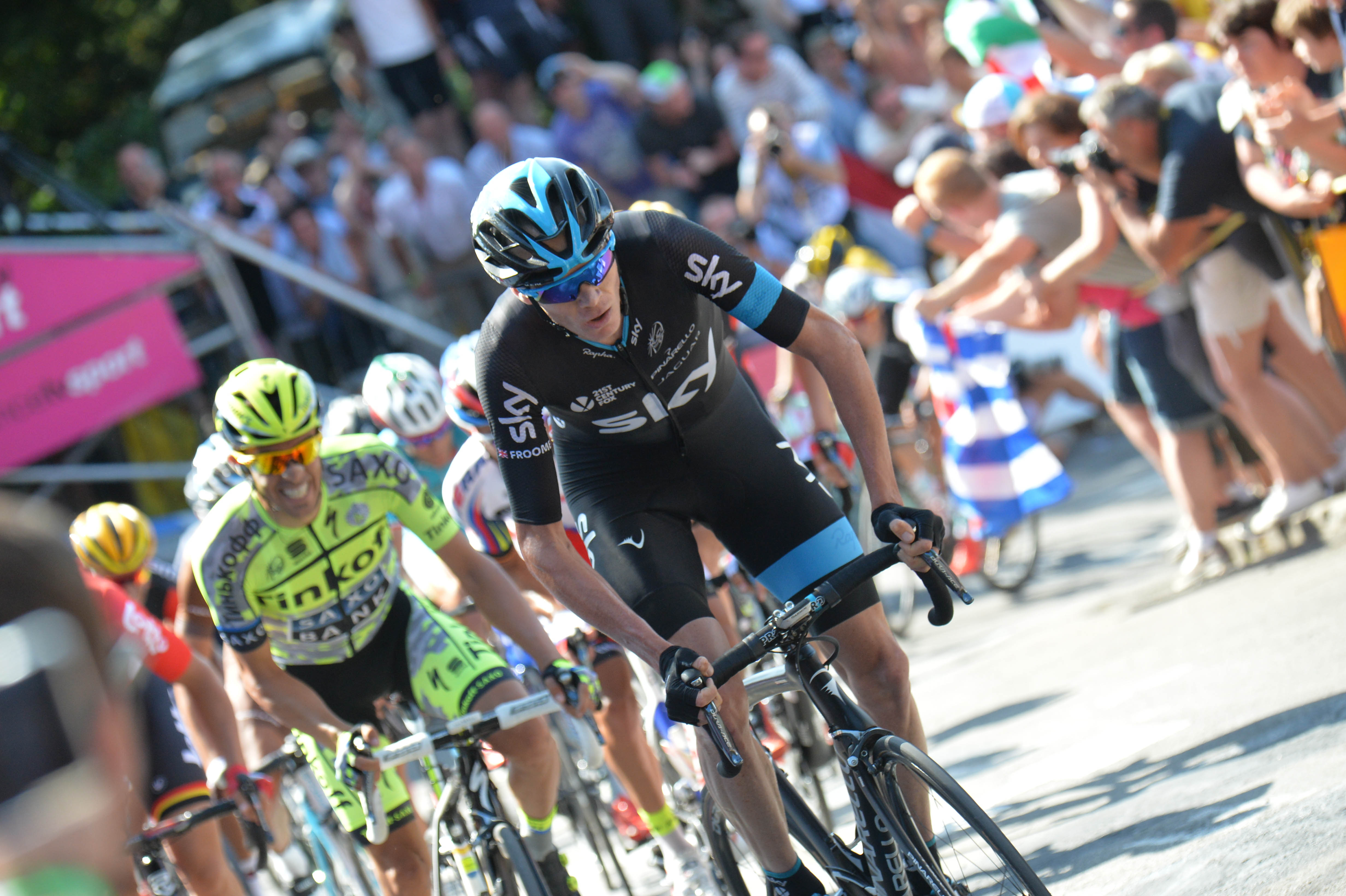
Grand Tours are psychological as much as physical, and as the riders began to climb to the finish, Froome put the power down. The margins were small – he gained 11 seconds on Nibali and Quintana, 18 over Contador – but he was laying down a marker as the man to beat, the man in form and the man with the race in his hands. Bonus time for finishing second put Froome into yellow, and although he would surrender the jersey the following day, he would never be out of the top two places again.
The battle of the cobbles
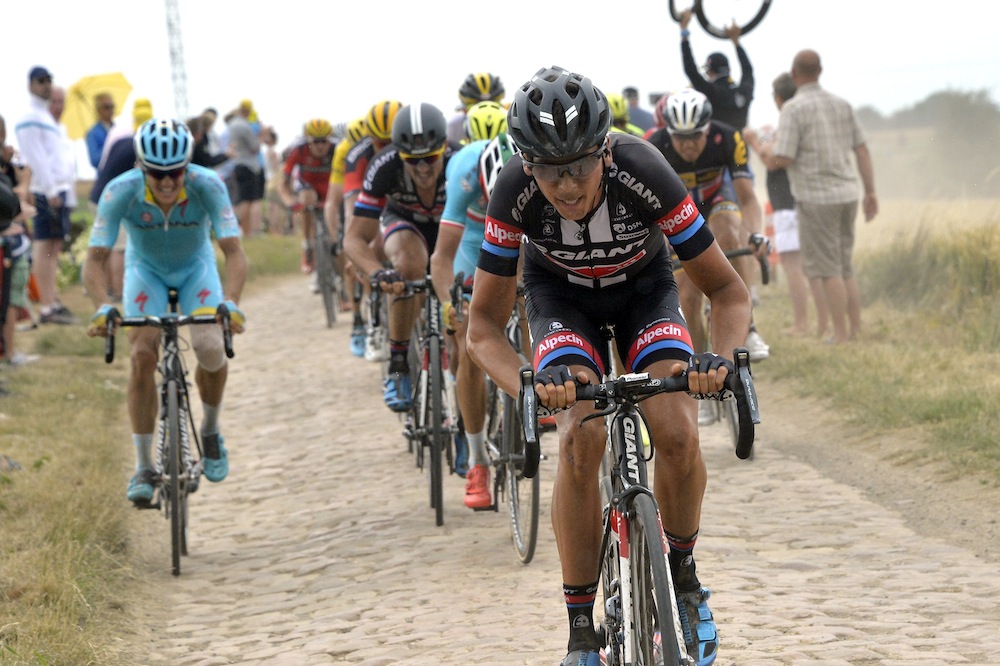
Rival teams doubtless believed that Froome was weakest on two stages of this year's Tour: the cobbles, where he crashed out of 2014's race, and Alpe d'Huez, where in 2013 he was forced to accept a time penalty for an illegal late feed.
This year's pavé wasn't quite the monster of last year – it was more a case of heat and dust than the slippery terrors that did for numerous contenders in 2014. Yet once again Froome seemed determined to make his mark, crossing the line ahead of Contador and Quintana, as well as the strong-looking Tejan van Garderen (BMC Racing), who was by now placed third in the general classification.
The team time trial
One of the unusual aspects of this year's race was the team time trial coming so late in the schedule. By stage nine it was inevitable that some teams would have lost riders, and the hilly parcours raised the possibility of big time gaps.
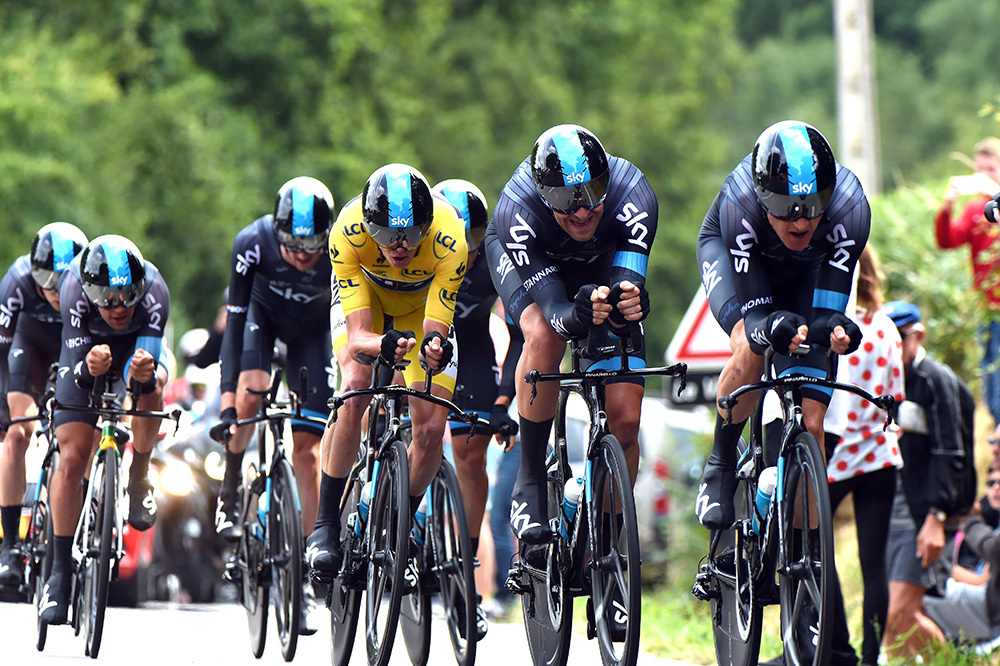
As clichéd as it might sound, no one could win the Tour in the team time trial, but one team might have a bad day and lose it — and Sky looked potentially vulnerable. Barely a month earlier they had come sixth on the equivalent day in the Criterium du Dauphine, conceding more than 30 seconds to BMC, Astana and Movistar, so this was a day that would have had Dave Brailsford's nails bitten to the quick.
This year's Tour win was built on an excellent all-round team performance by Sky, however, and they finished in second place, just one second behind BMC, as the general classification remained largely unaffected.
The ride that shocked the world
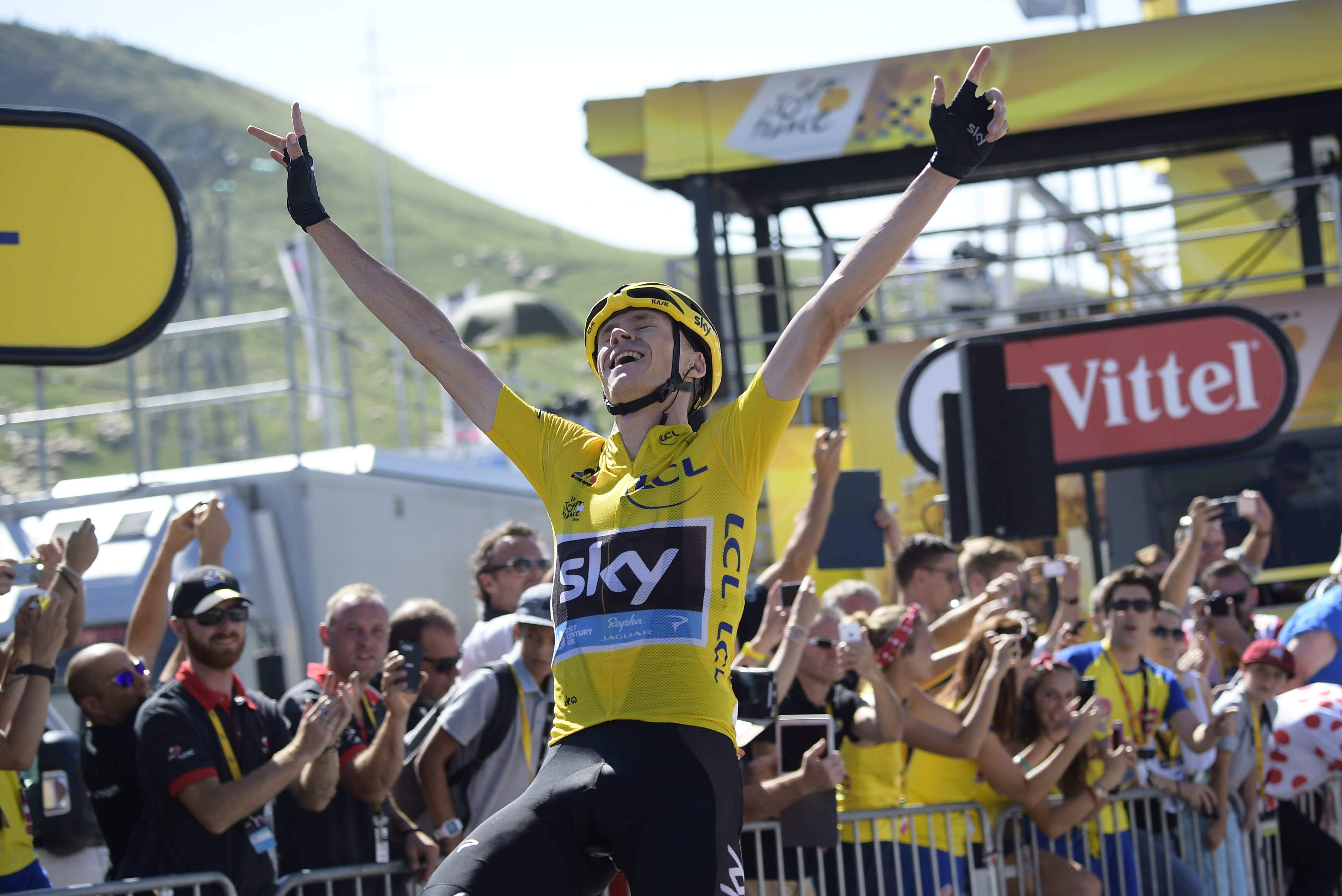
This was the big one. Sky have built their Tour wins on strong performances on the first mountainous stage, and so it was at the summit finish of stage 10. La Pierre-Saint-Martin will be forever associated with this year's race and with Chris Froome in particular, as he attacked 6.3km from the finish for a solo win that underlined his total superiority over the competition.
It was a ride so strong that it raised questions for Froome and led to innuendo around doping for the rest of the race, but by the end of the stage his 12-second advantage in the GC had stretched to almost three minutes. And it wasn't just Froome — when his team-mate Richie Porte streaked past Quintana to finish second on the stage, it looked as if Sky were utterly impregnable.
Thomas holds it together
Stage 12 was widely regarded as the Queen Stage of this year's race, featuring four tough climbs over 195km of racing. Froome's rivals would have to begin their attacks if they were to stand a chance in the overall classification, but it was the turn of Geraint Thomas to assist his team leader on a day of supremely high stakes.
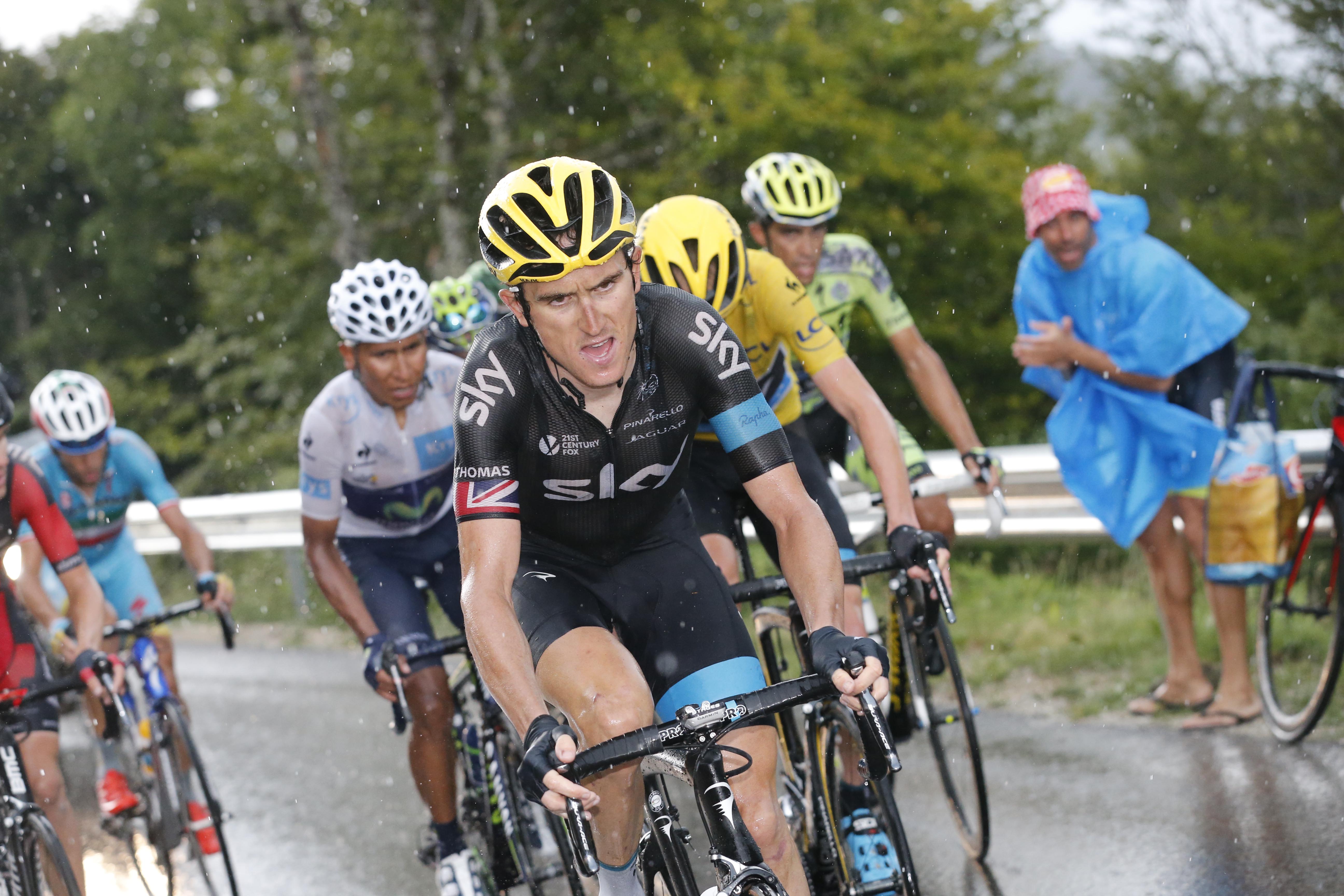
Porte and Thomas helped Froome to withstand attacks from first Contador, then Nibali, then Quintana. But in the final kilometre the Welshman upped the pace, protecting his leader from further attacks as he once again crossed the line ahead of his rivals.
Quintana's attacks flounder
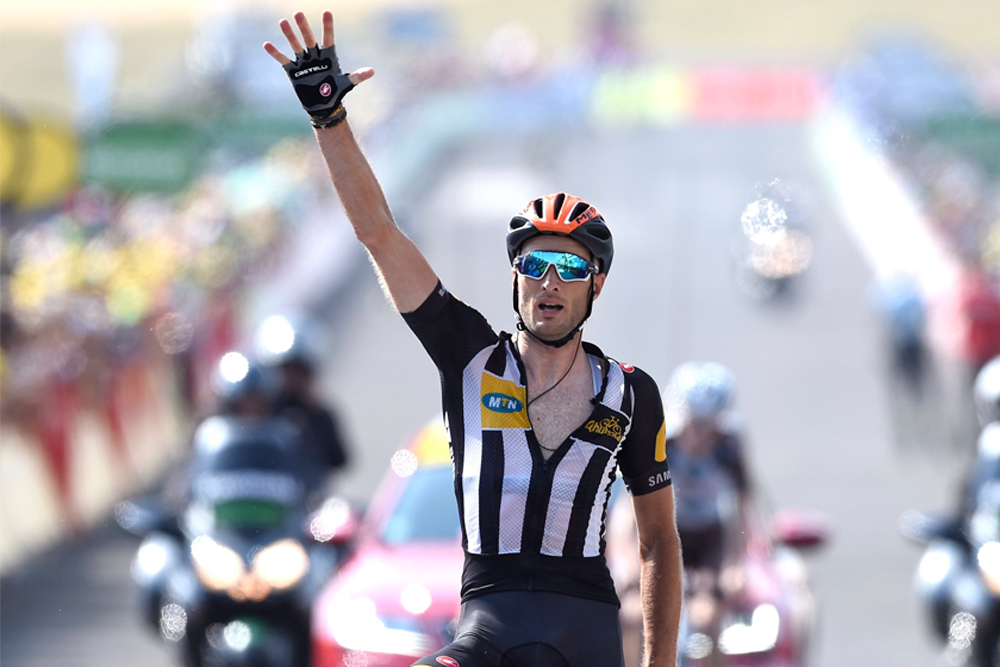
Stage 14's headlines were taken by Steve Cummings (MTN-Qhubeka), who crafted a magical win for his African team on Mandela Day. But behind the breakaway was a game of cat-and-mouse between Froome and Quintana that would epitomise the battle between the two. The little Colombian burst forward again and again, desperately searching for an advantage, no matter how small, over the race leader. But a moment later Froome would answer the call and pull level — and eventually, with the finish line in sight, the yellow jersey powered clear, adding another second to his lead and yet another psychological blow on the route to Paris.
Showdown on the Alpe d'Huez
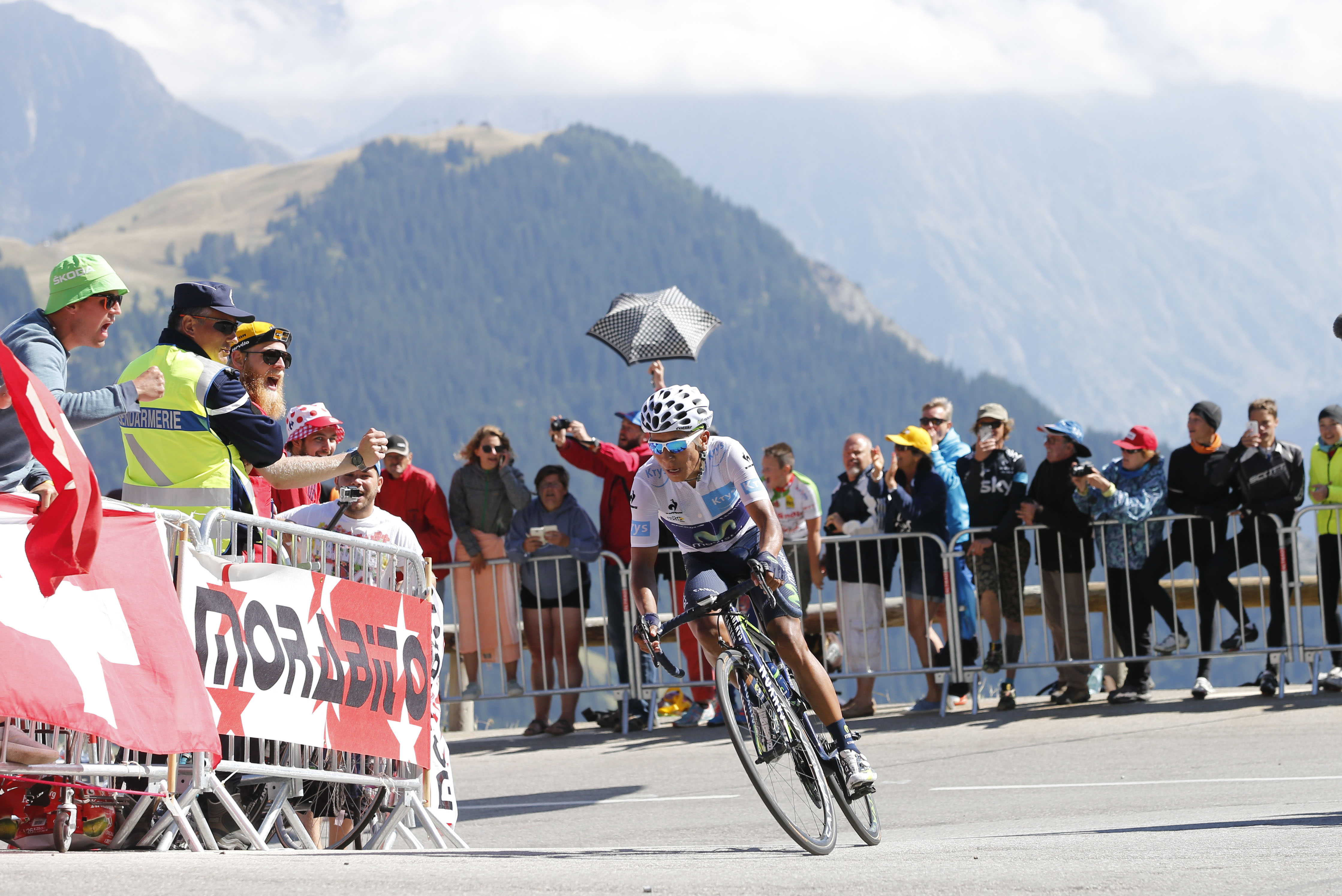
It was, said Quintana's team in the days before, Froome's potential weakness. “The day to drop Froome will be the Alpe d’Huez,” Movistar sports director José Arrieta said. “Remember his crisis there in 2013?”
The stage was set for a grandstand finish on the penultimate stage of the race.
The day before, for the first time, Froome had looked vulnerable, conceding 30 seconds to the Colombian on the climb to La Toussuire. And now the equation was simple: on the last proper of day of racing, Quintana needed to beat Froome by more than 2-32 minutes to win the Tour de France.
Sure enough, Quintana attacked, and Froome, with the help once more of Porte, clung on. He said he "died a thousand deaths" as Quintana stretched his lead — but he dug deep, as all Tour de France champions must do, and made it with 1-12 minutes to spare, thus sealing his second Tour win in three years.
Watch the 'Best of' the Tour de France 2015

Thank you for reading 20 articles this month* Join now for unlimited access
Enjoy your first month for just £1 / $1 / €1
*Read 5 free articles per month without a subscription

Join now for unlimited access
Try first month for just £1 / $1 / €1
-
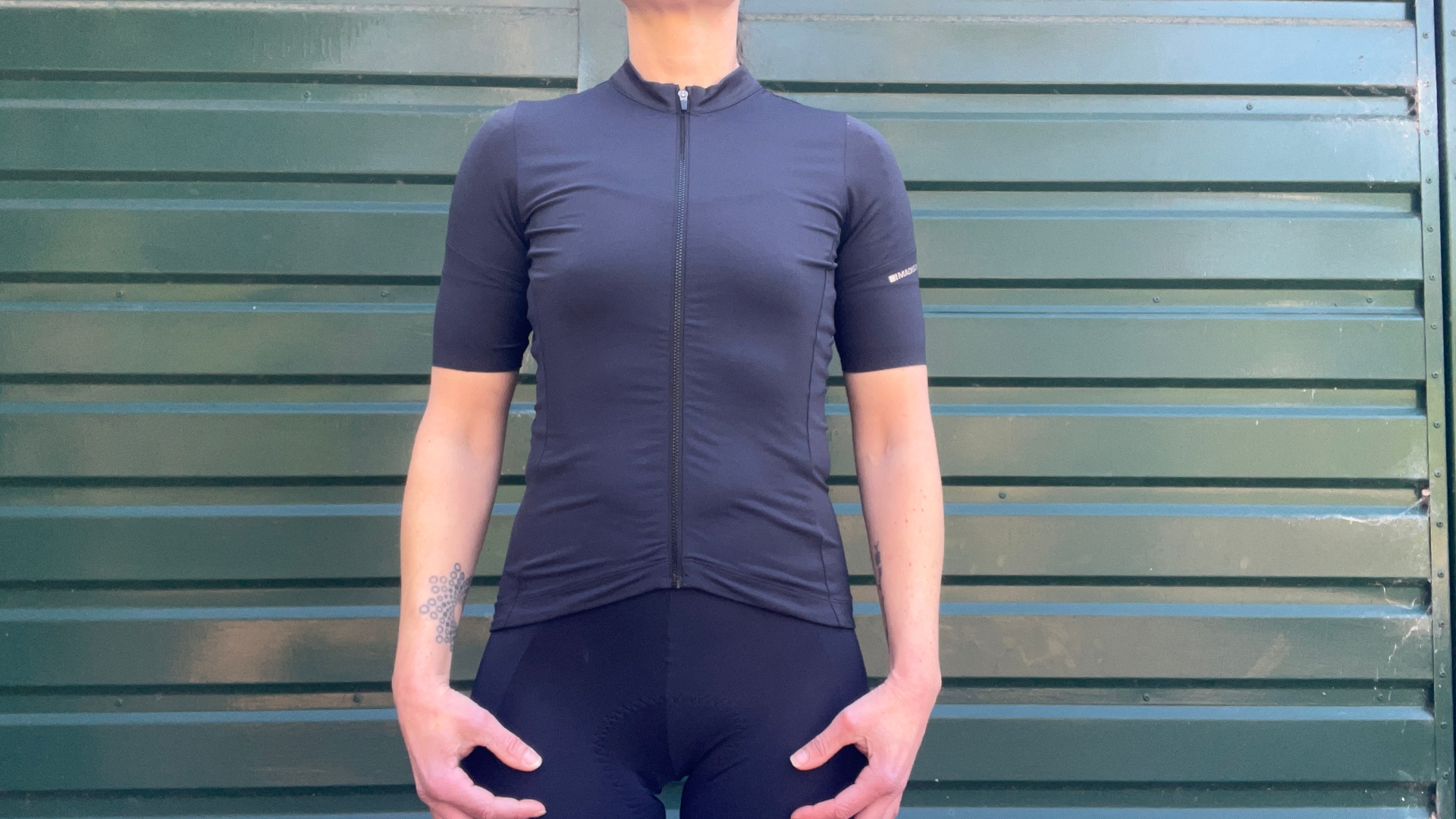 Madison Flux short sleeve jersey review: functional and affordable
Madison Flux short sleeve jersey review: functional and affordableThe road cycling jersey delivers top performance for a budget-conscious cyclist
By Hannah Bussey
-
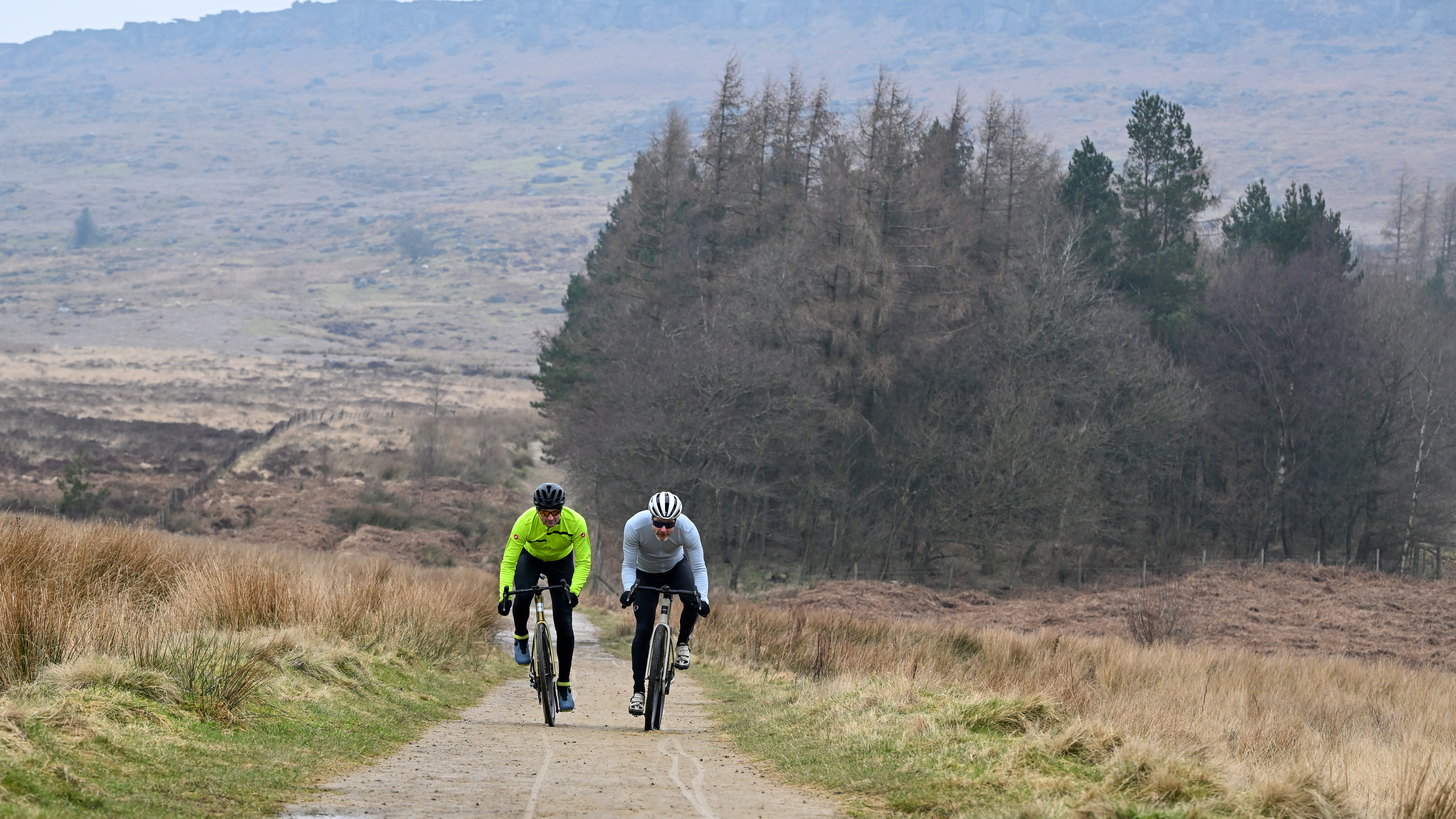 I pitched a top-end all-road bike against a top-end gravel bike, here's what I found
I pitched a top-end all-road bike against a top-end gravel bike, here's what I foundMulti-surface machines go head-to-head-to-head and categories clash as Tim Russon rolls up for the ultimate do-it-all bike showdown
By Tim Russon
-
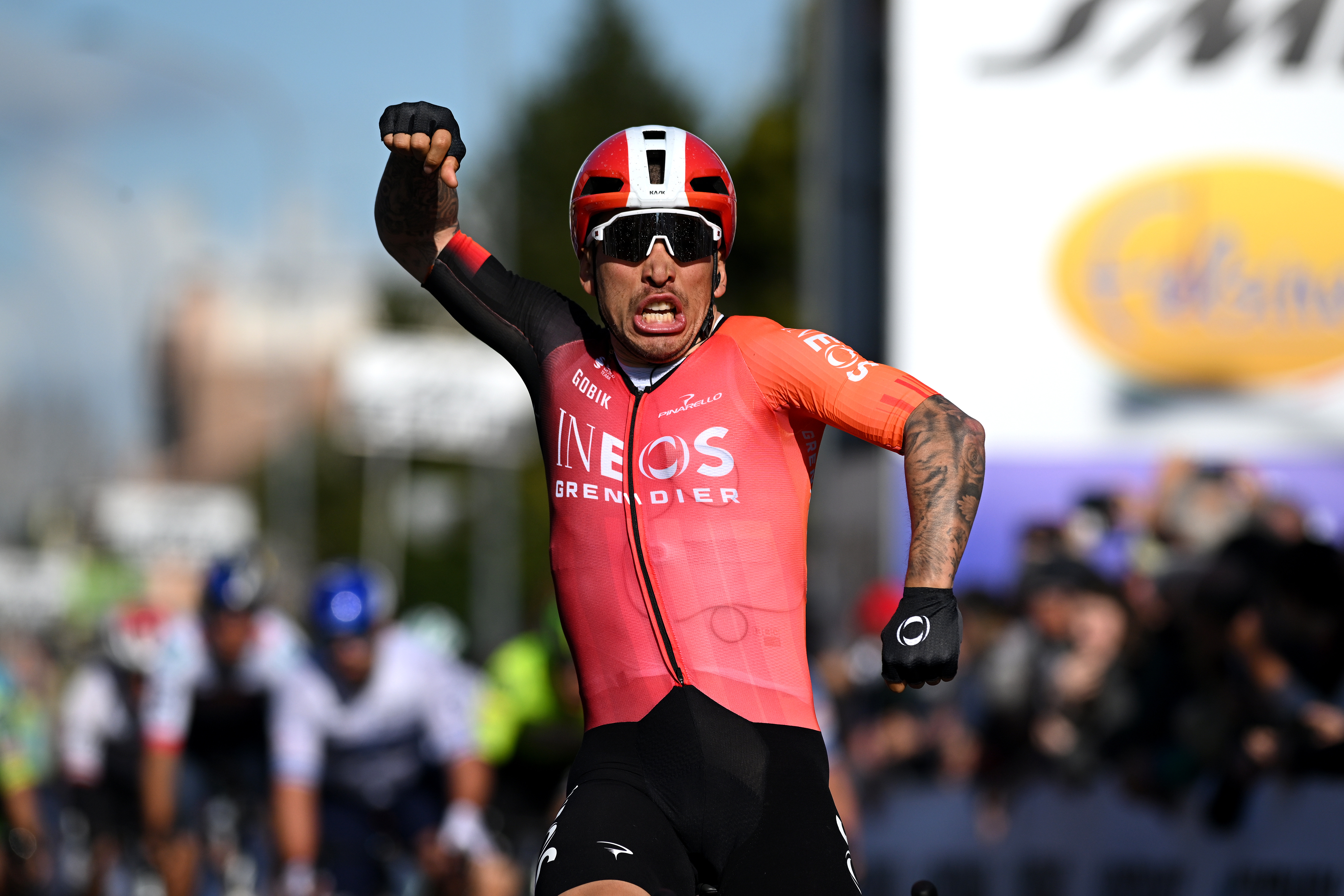 'It can really push me along' - How a velodrome comeback is making Caleb Ewan faster on the road
'It can really push me along' - How a velodrome comeback is making Caleb Ewan faster on the roadAustralian says he'll "definitely" continue track work after rekindling passion
By Tom Davidson
-
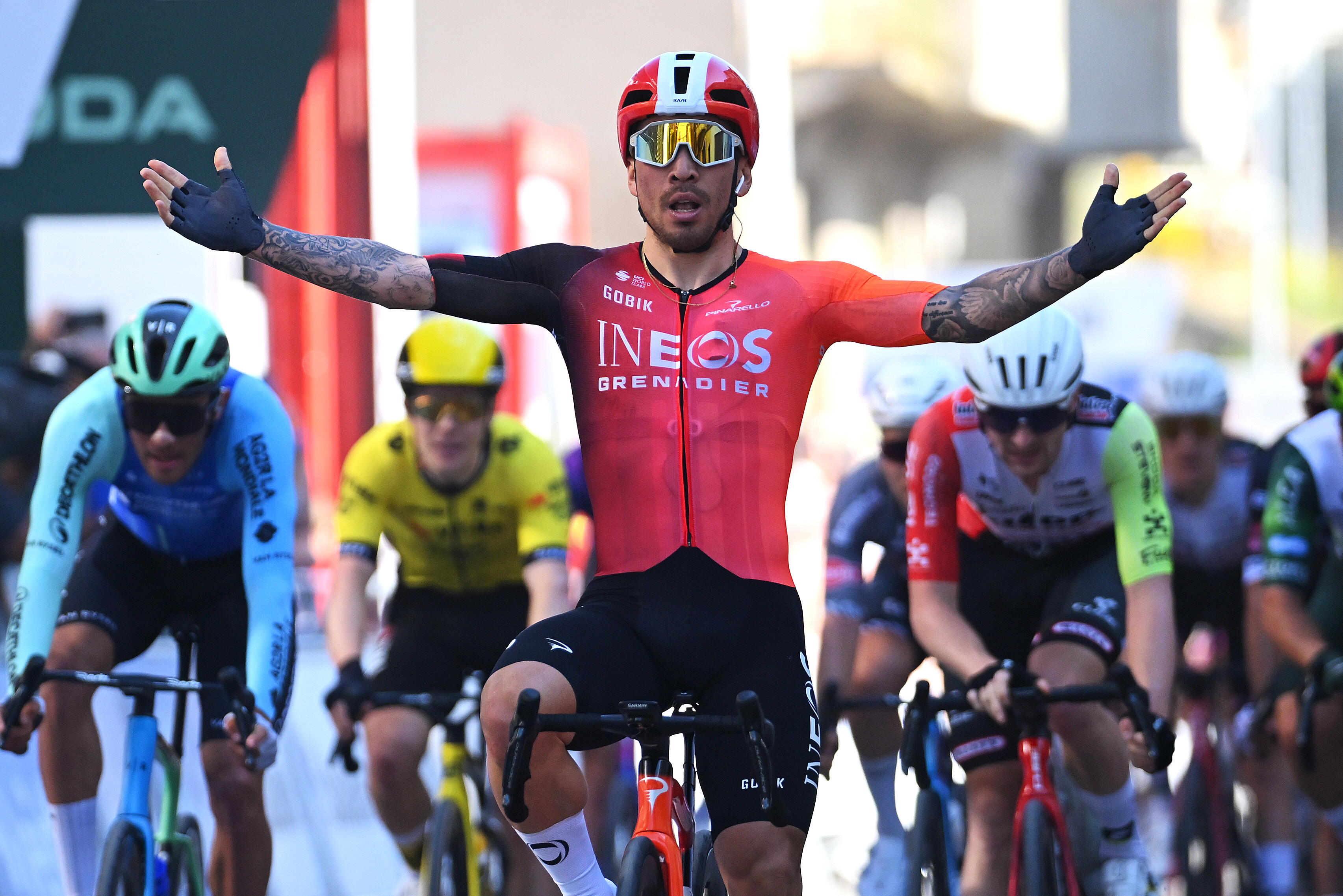 Could Caleb Ewan be Ineos Grenadiers' first Tour de France sprinter since Mark Cavendish? 'That's my goal'
Could Caleb Ewan be Ineos Grenadiers' first Tour de France sprinter since Mark Cavendish? 'That's my goal'"All I can do is try to win as much as possible and prove that I deserve to be there," says Australian
By Tom Davidson
-
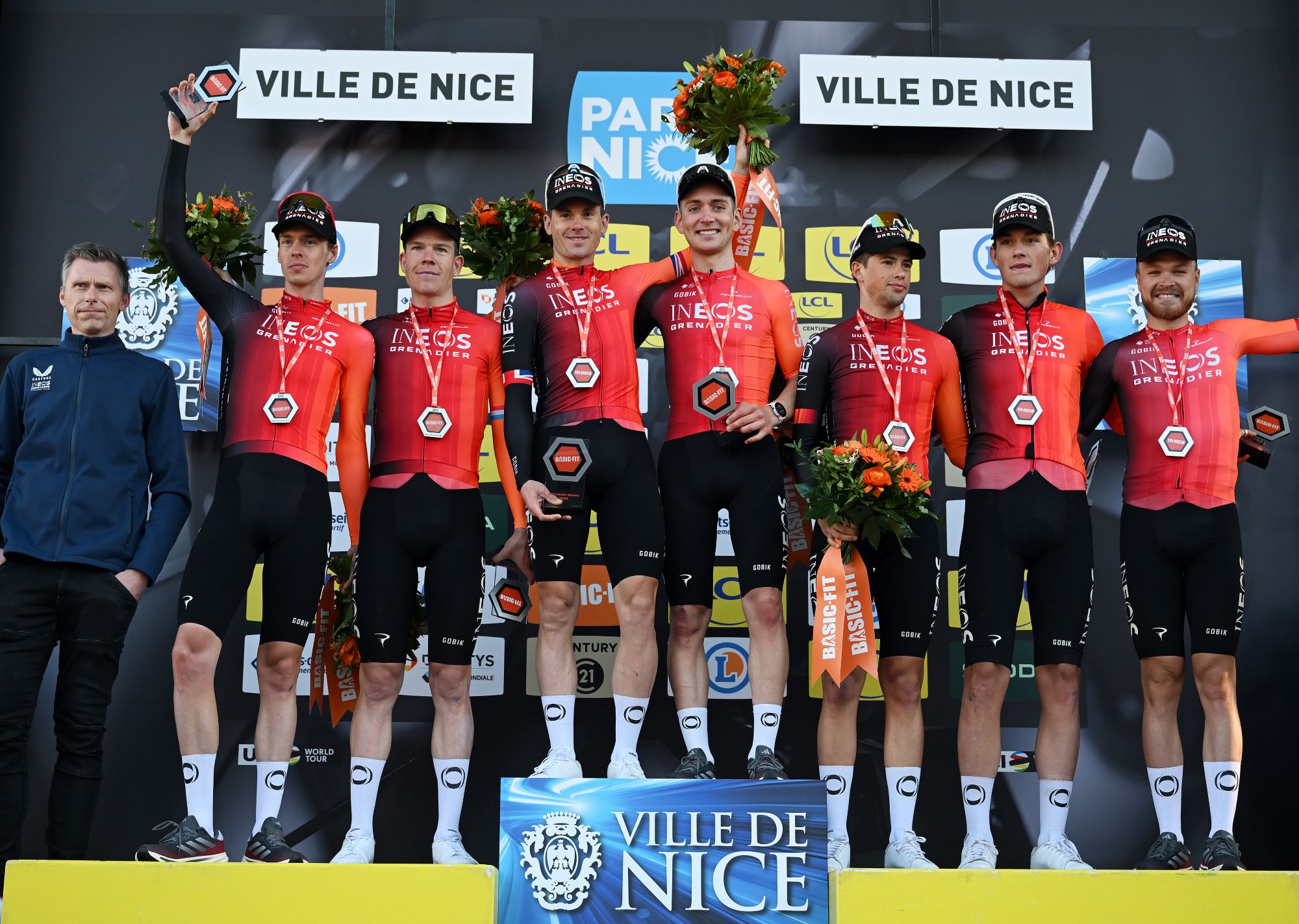 'An unprecedented opportunity for brands to be part of the evolution' - Ineos Grenadiers sponsor hunt steps up with sales agency partnership
'An unprecedented opportunity for brands to be part of the evolution' - Ineos Grenadiers sponsor hunt steps up with sales agency partnershipSportfive have been employed to find "non-endemic global partners for the team"
By Adam Becket
-
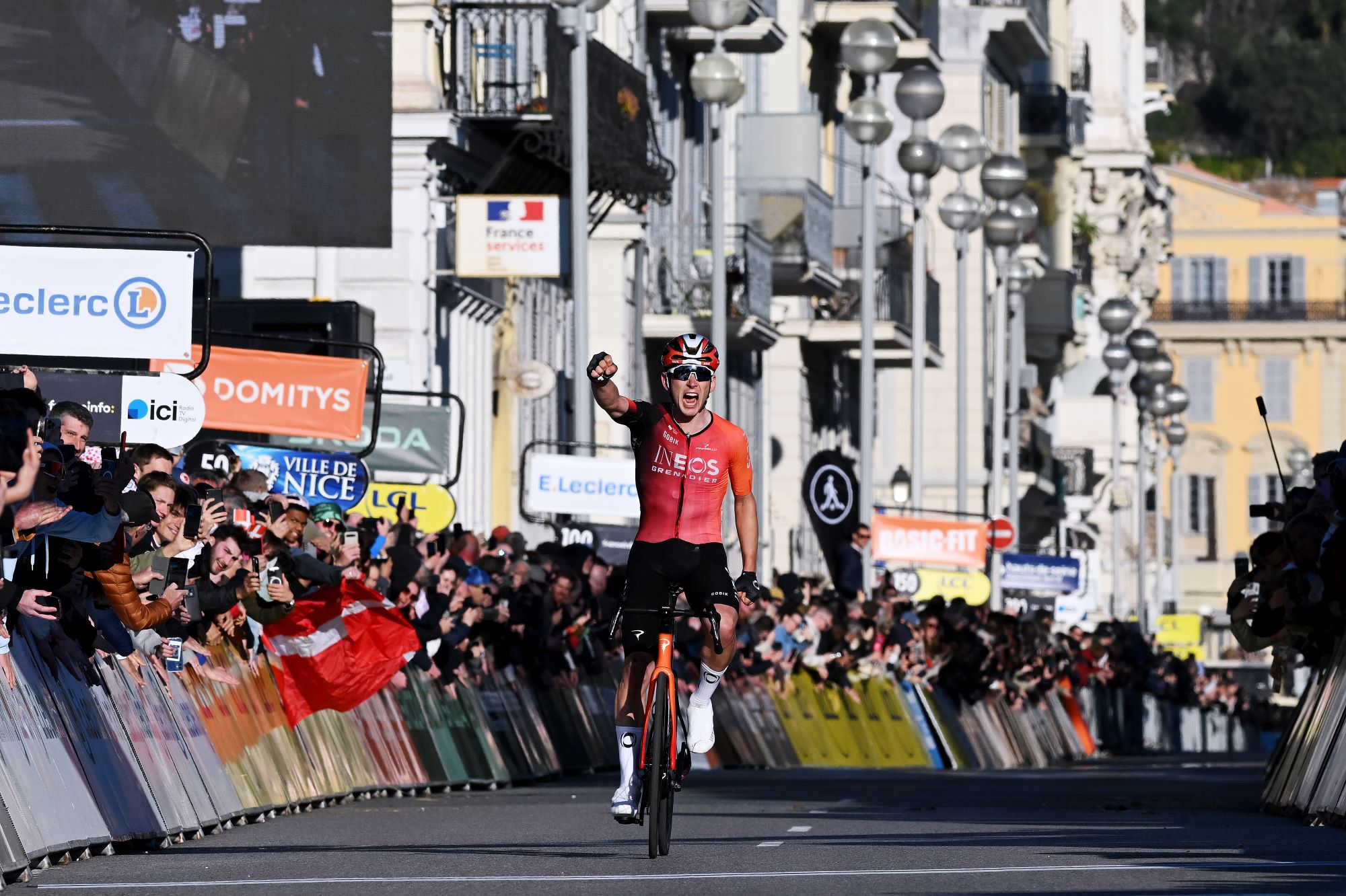 'We've all got a little bit extra in us this year' - Ineos Grenadiers recapture 'fighting spirit' with aggressive Paris-Nice display
'We've all got a little bit extra in us this year' - Ineos Grenadiers recapture 'fighting spirit' with aggressive Paris-Nice displayBritish team continue to put tumultuous 2024 behind them with momentum and a new found mentality
By Tom Thewlis
-
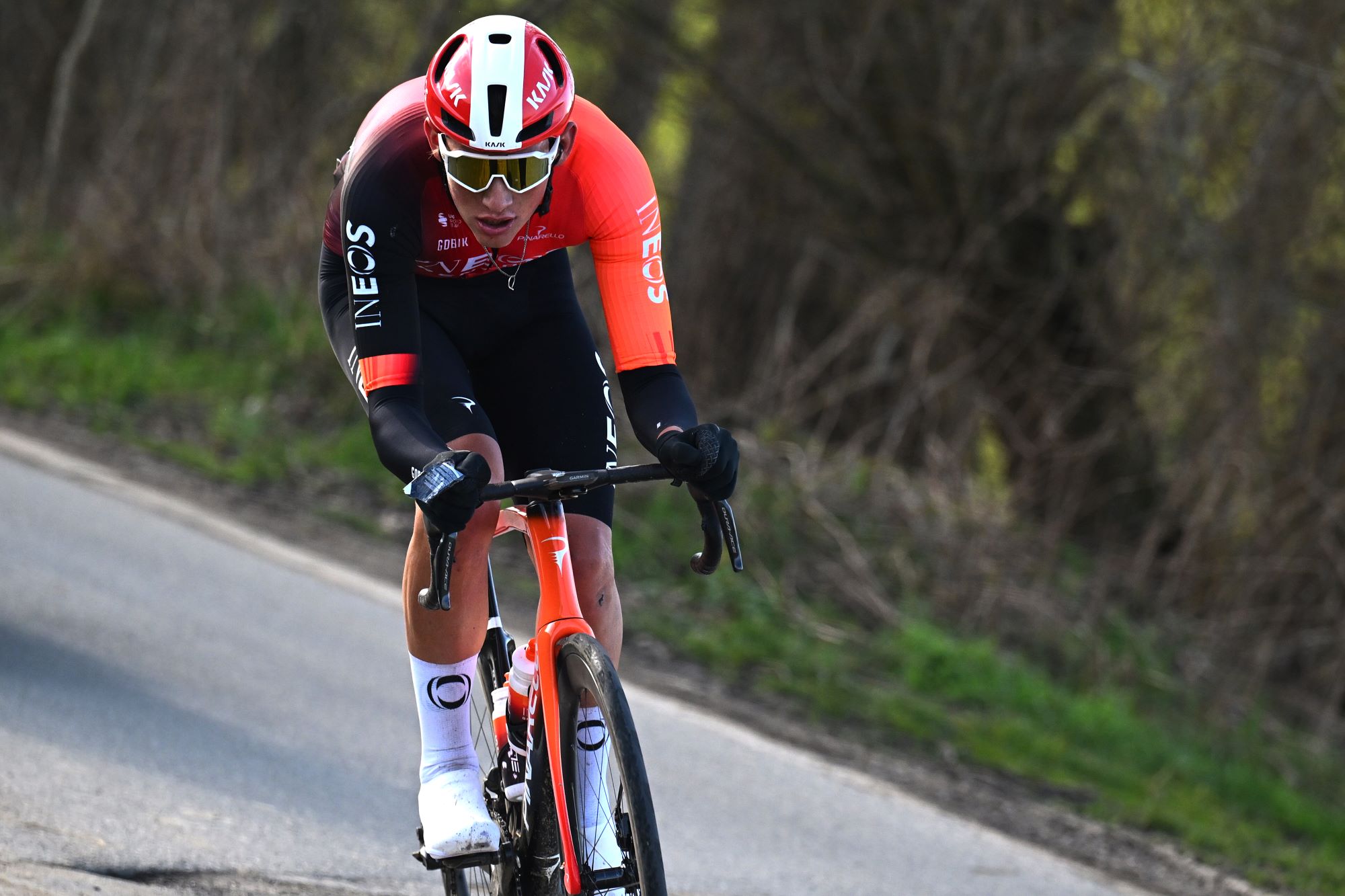 Could a TotalEnergies deal be the end of Ineos Grenadiers as we know them?
Could a TotalEnergies deal be the end of Ineos Grenadiers as we know them?Reports suggested this week that Ineos could be close to signing a deal with the French petrochemical firm
By Tom Thewlis
-
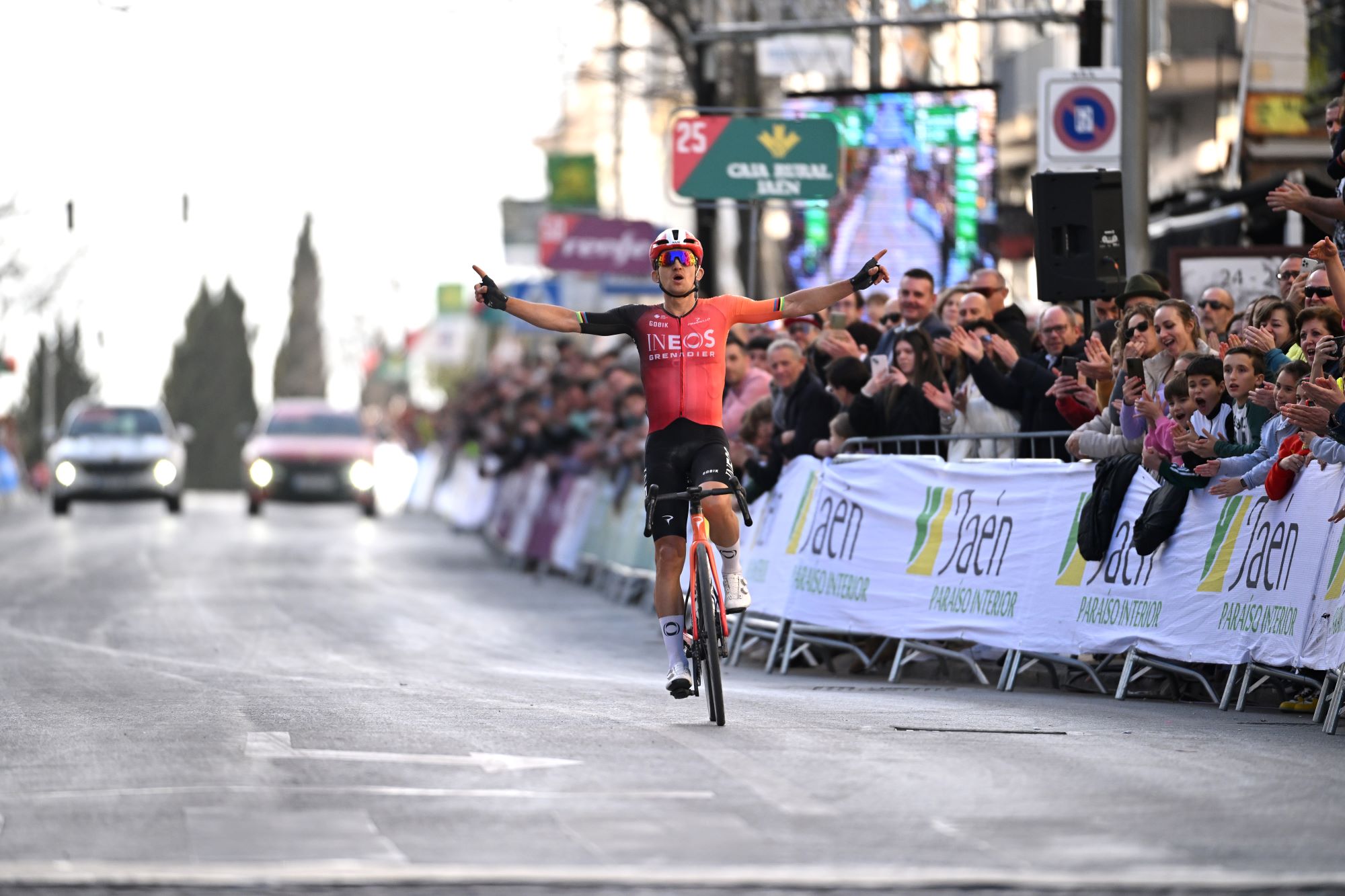 'They’re racing with their hearts again' - Robbie McEwen on Ineos Grenadiers' bright start to 2025
'They’re racing with their hearts again' - Robbie McEwen on Ineos Grenadiers' bright start to 2025The British squad have already won four times in 2025
By Tom Thewlis
-
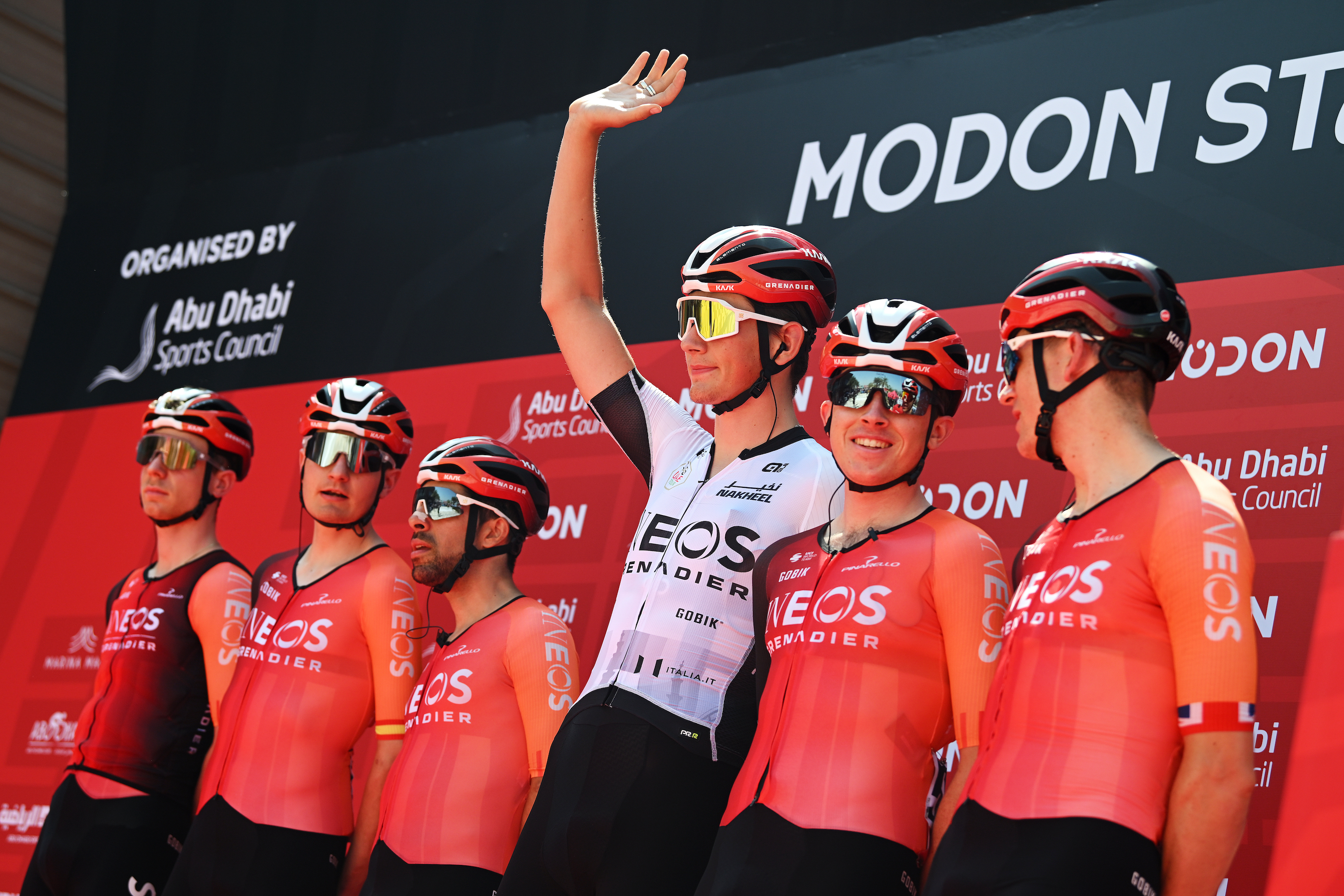 Ineos Grenadiers are entertaining so far this year, but how long will it last?
Ineos Grenadiers are entertaining so far this year, but how long will it last?The British WorldTour squad have won four times already in 2025, but more than that, they have been fun. Is this the new dawn?
By Adam Becket
-
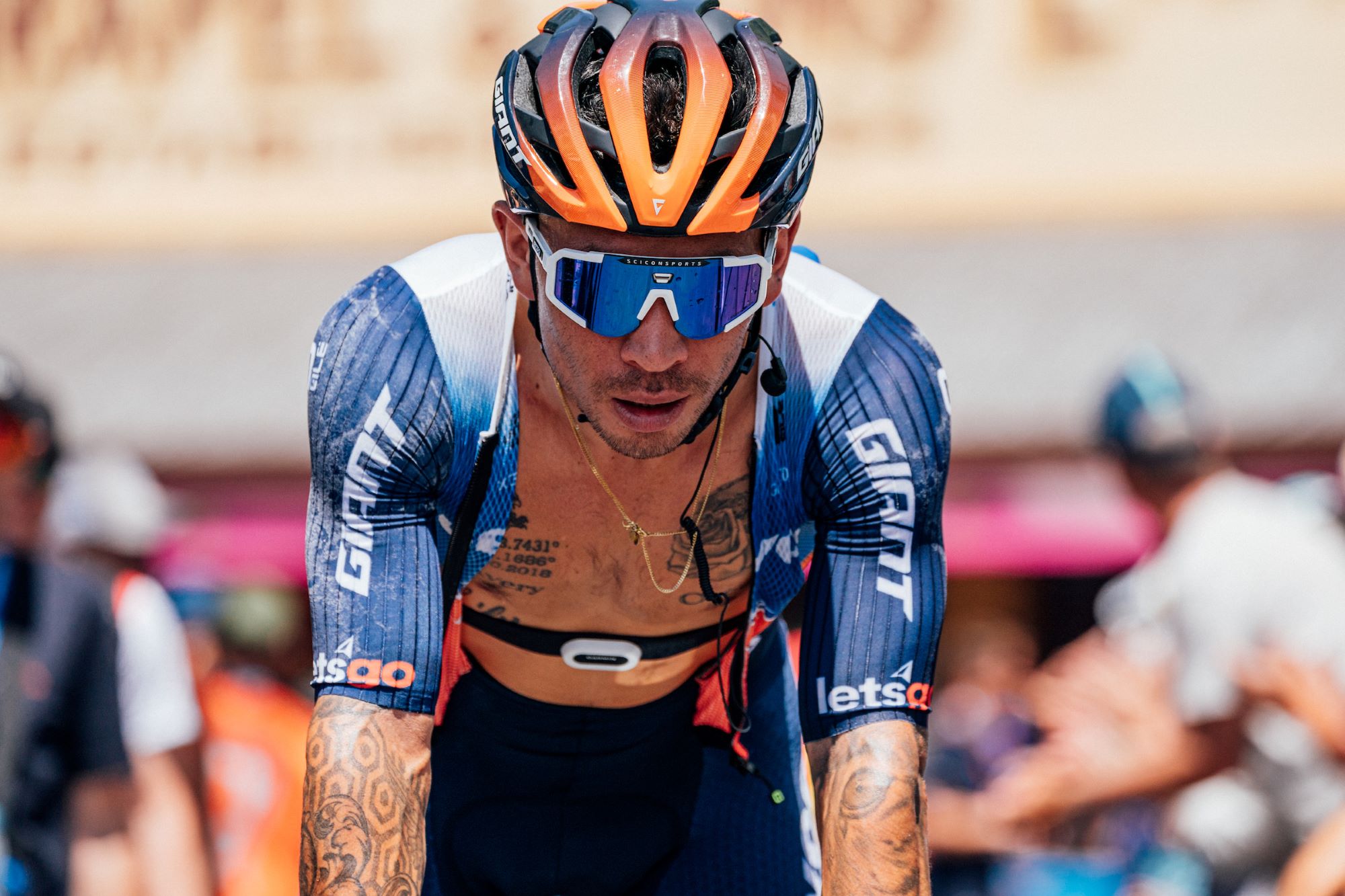 Caleb Ewan says he was put in a 'bad situation' by Jayco AlUla before he joined Ineos Grenadiers
Caleb Ewan says he was put in a 'bad situation' by Jayco AlUla before he joined Ineos GrenadiersEwan joined Ineos Grenadiers in January after spending just one year with Jayco AlUla
By Tom Thewlis